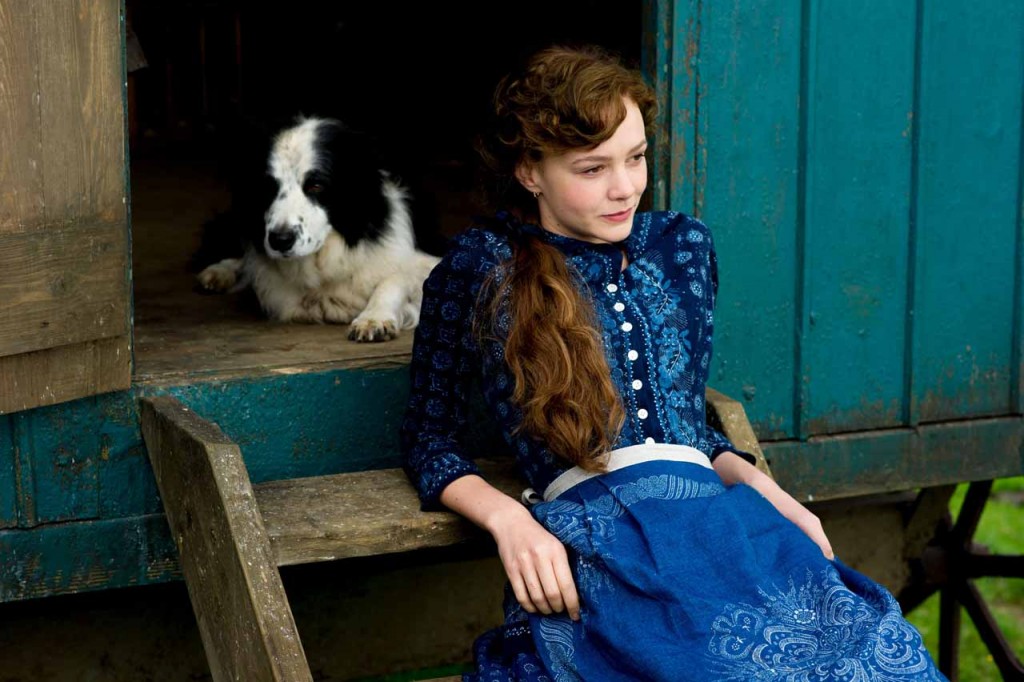It began life as a serialised story, transformed itself into a novel and has since graced stage and screen as four films, numerous plays, a ballet and an opera. Now Thomas Hardy’s Far From The Madding Crowd (opening in cinemas around Australia today) arrives in the 21st century as a timely tale challenging young women to choose what is right over what give the greatest pleasure.
Carey Mulligan stars as Thomas Hardy’s memorable heroine, Bathsheba Everdene, a proud beauty with a strong independent streak labouring in the rural Wessex of 19th century England. There she meets the stolid and dependable small-hold farmer Gabriel Oak (Matthias Schoenaerts) who, smitten, proposes in a direct and unromantic manner. However Bathsheba lives up to her aunt’s description of being, ‘far too wild’ for matrimony:
“I don’t want a husband. I’d hate to be some mans property … [and] I do not feel what would justify me in accepting your offer.”

Carey Mulligan as “Bathsheba Everdeen” in Far From the Madding Crowd, out in cinemas today.
But this is, of course, only the first fifteen minutes of what is in fact a very fast-moving film. A sad disaster and a surprise inheritance ensure, leading to a reversal of fortunes that sees Bathsheba rise to the level of an estate owner and Gabriel sink to the rank of a shepherd in her employ. What follows is a tale of blighted lives and broken halves as Gabriel, the gentleman farmer William Boldwood, the dashing Sergeant Francis Troy and, above all, Bathsheba seek to discover what place pleasure and responsibility will occupy in their respective worlds.
This film’s Bathsheba displays a personality that will appeal strongly to the feminine spirit of our age. She is a confident woman who is not only the mistress of her own estate, but determined to follow the dictates of her heart. Like her Biblical namesake, Bathsheba is an object of affection that sets up conflict between key characters. Beyond her obvious beauty, men are drawn to a nature that will not submit to the expectations of her age. However the tragedy that envelopes Bathsheba stems from her failure to consider the effect her heedlessness will with have on others – much like a woman who would bathe on a rooftop regardless of who might see her.
It’s the stolid Gabriel who, true to his name, provides Bathsheba with God’s true plan for men and women. He cautions her to live a sober life, and displays his love for Bathsheba by never shirking the responsibility to tell her the truth, however painful or injurious to his own cause. But if he gainsays her decisions it is only for her good. And though he leads her forward by word and example, he doesn’t seek to dominate her as some men have. Rather, when Bathsheba finally surrenders her will to him, he points her Christ-like to a standard that rises higher than her own comfort or wishes:
Bathsheba: Tell me what to do Gabriel.
Gabriel: Do what is right.
Email This Story
Why not send this to a friend?



